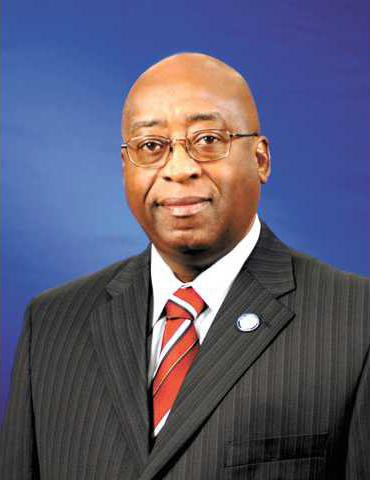Education: Master's Degree in education from Middle Tennesee State University, Bachelor's in English, Tennessee State University in Nashville
Family: Wife, Connie, and two adult daughters, Andrea and Camille. Murray is also part of the same family outlined by Alex Haley in the book and TV series "Roots."
How did you get started in juvenile justice?
When attending undergrad school, I worked at the local state hospital and I developed a strong interest in people who had special needs. After taking a job as a case worker in Tennessee, I realized the impact I could have on the lives of people with special needs.
How has the field changed over the years?
When I came into the juvenile system years ago, there were very few policies and procedures of what I call national standards to operate. The good of that was it gave me flexibility to operate. The bad of that was there was no guidelines. We all operated differently. I have seen the juvenile justice system establish guidelines by which all staff should operate.
I have seen juvenile population change tremendously from the time when I came in. There was the presence of some drugs, but now that has changed. Most of the young people we get in the system now have had drug issues and or weapons. It requires a different approach in terms of working with youngsters now.
I'm a strong advocate for prevention and early intervention. The more we can invest in children, at preschool age, the more they can stay on the right track.
Many of the youth we get come from single parent families, or in some cases no parents. They're being raised by grandparents or practically raising themselves. Taking nothing away from single parents raising children, but it's a very challenging job. They don't have that other parent to help, and that creates an environment where children don't have one parent at home. Those children often times wind up in the juvenile system.
Where you raised with a single parent or with both parents?
I was fortunate to come up in a home with both parents. My dad was a minister and my mother was a homemaker. They were wise and loved their children. My parents didn't make a lot of money but that didn't seem to matter at the time because there was so much love in my home.
One of the things I found inspiring as I was growing up, I had a local group of ministers who provided support to all of the children. They made sure we got our homework and we behaved.
There was a trust element there. They were mentors. I'm not sure they understood what they were doing, but they were valuable to me and others. I would often times say if I had gotten in trouble, I would have rather gone in front of a judge than these mentors. They set the difference between right and wrong.
I think there's a strong need now for more mentors. We have a number of people who can give their time as mentors, but I don't' think we can ever have too many. People who may have had great careers and are retired but who can share good advice to young people. They don't have to be school teachers, or retired. But just willing to spend some time with a teenager or preteen.
What are some of the challenges facing the juvenile justice system?
We're careful to know who we're placing in one dormitory. We have to be on top of that. That's always a challenge. Another challenge is extreme capacity. We try not to operate our facility at extreme capacity. More often than not we have to operate at more than capacity, but we try to keep that in a manageable range.
Funding. A system will only be a s good as the funding in place. We have had budget cuts, but have been able to maintain a minimal level. There is no compromise in funding public safety.
Growth. As the population in Georgia grows, so do the numbers of youngsters that go into the juvenile system.
What are the elements of a healthy and effective juvenile justice system?
There has to be a commitment to quality services. It comes from commitment from the top and team of staff to make sure quality services are given at all time. It doesn't take long for people to know you're genuine. If you're passionate and committed or if you're there for a paycheck.
What has caused me to enjoy success in this role is very capable employees. They have been like family. I have one of the strongest teems in place at DJJ that I have had in my career. 2009 has been a good year for DJJ and me as the head.
Why did you choose to settle down in Rockdale?
When I was appointed Commissioner (in 2004), I moved to Rockdale at that time. I liked the east side of Atlanta. It was close and convenient to the headquarters. I like the smallness of Rockdale County.
I have the best of both worlds. Rockdale has a small town feel but close enough to the business district of Atlanta. I also found the people in Rockdale to be friendly, in a way that reminds me of the small town where I grew up.




